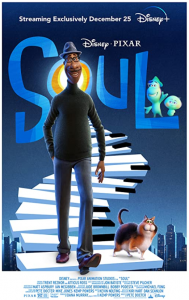Years ago while trying to explain that a bad remake does not ruin your childhood, I described modern remakes as attempts to make money by “strip-mining nostalgia.” And before I explain the metaphor further, let me clearly state that BEVERLY HILLS COP: AXEL F is a much, much better movie than that.

Strip-mining is how you destroy the landscape to get at just one thing. The strip-mining nostalgia metaphor kind of means “ruin my affection for the franchise.” And BEVERLY HILLS COP: AXEL F did NOT ruin things.
I watched all three Beverly Hills Cop films before watching this, and then I watched the first one again, with Sandra, who hadn’t actually seen it.
She agreed with my assessment of the first film: the original BEVERLY HILLS COP is a very good movie, and the music deserved acting credit because it was not just instrumental (hah!) to the atmosphere of the film, it helped tell the story in ways that almost-but-not-quite crossed into the line of musical theater.
BEVERLY HILLS COP II was a competent, 80’s-era sequel. The production team knew how to make a good movie, but they didn’t really understand the science of a brilliant sequel. This was the 80’s, almost nobody understood that.
BEVERLY HILLS COP III was awful, and its biggest sin lay in the orchestral variations on Harold Faltermeyer’s “Axel F” theme. They were competent¹ arrangements, sure, but they sounded like they belonged in “Axel Foley Goes to Silverado.” Which I would watch, provided it was not made by the people who made BEVERLY HILLS COP III.
BEVERLY HILLS COP: AXEL F was made by people who do understand the science of a good sequel. It follows the beat chart of the first movie, but it doesn’t just go through the motions. It knows what those beats are for, and why they worked, and it leans into that understanding to deliver what, for some people, can serve as a master-class in making a franchise film.
I’ve read several articles about the production of the film, and the most interesting thing I learned was that they re-recorded the Axel F theme using the original synths, which they got from a museum. This meant the theme had the same *exact* waveforms, delivering that familiar sound even after giving it the deconstruction and theme-and-variations treatment. That one song could now support multiple scenes without making us feel like they were just playing samples of the same song over and over. (Which, thanks to Crazy Frog², is a treatment we have definitely seen applied to Axel F. )
BEVERLY HILLS COP: AXEL F follows the same basic plot as the first two films, in that the audience and the protagonist know who the bad guy is, and the detective work lies in accumulating the right evidence, and then surviving to deliver it³. It also improves on the scene-to-scene flow⁴ of that formula, giving us snappy dialog and dramatic moments that run straight up against action.
I should sum up. I’ve watched BEVERLY HILLS COP: AXEL F twice now, and I have no regrets. I’m not tracking my thresholds lately, but this one definitely clears the Threshold of Awesome. It was better than just “better than I expected it to be,” and that might sound like low praise, but I’ll definitely watch it a third time. Hopefully that helps you calibrate your own expectations.
— notes —
¹ I used ‘competent’ twice because it’s the right word. In the arts it kind of means “knows how to hold a paintbrush, mix colors, and create a painting, but doesn’t know how to make actual art.”
² Google “Crazy Frog” at your peril. It was silly fun twenty years ago, but now it just leaves me annoyed, and ashamed for having liked it once.
³ The third film messes with the formula, giving us a plot twist right at the end. It was a nice idea, but it was not executed well. Just take my word for it. Don’t go watch BEVERLY HILLS COP III. Sure, you can go listen to “Crazy Frog” at your peril but BHCIII is a different level of DO NOT.
³ “Scene-sequel” format, which comes to us from Dwight Swain’s TECHNIQUES OF THE WORKING WRITER, is perfectly employed here. You don’t need to know that to enjoy the movie, but if you are a writer then it’s something you should pay attention to.



